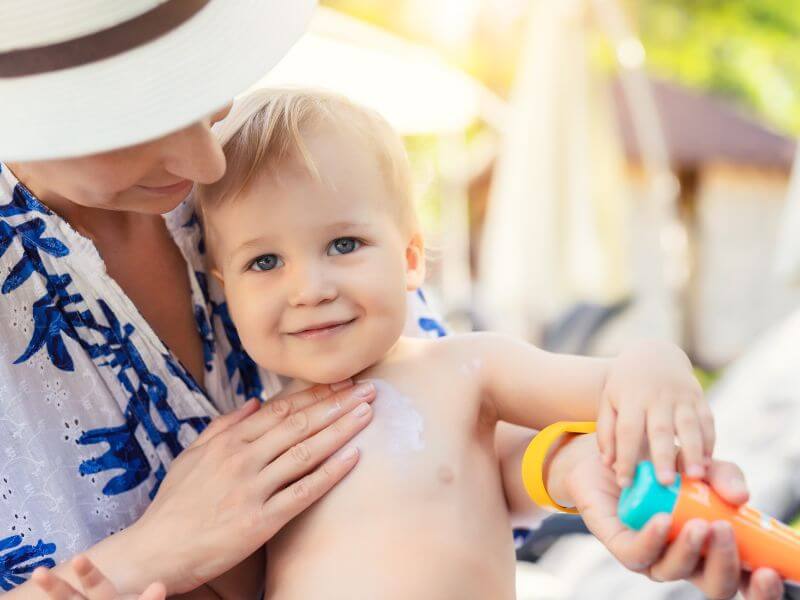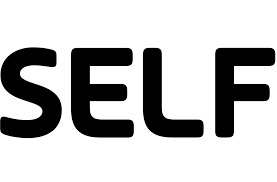Read Full Article HereParenting is filled with many firsts, but some of those firsts can be alarming – such as when your baby gets his or her first sunburn. Knowing what to do to prevent a sunburn is important, but you also need to know what to do if your baby’s sensitive skin gets burned.
Children’s skin is much more sensitive than adults’ skin, so prevention is key. It takes less exposure to the sun for them to get a sunburn, and the effects can be much worse for them. It’s not something for parents to take lightly.
What to Do If Your Baby Gets a Sunburn
Sometimes it can take time for a sunburn to appear, so watch for symptoms like redness within the first 4-6 hours after sun exposure. Redness may intensify over the first 12 hours. Let your doctor know what symptoms your baby is having, and he or she will be able to advise you on your next steps.
They may advise you to give a pain reliever like children’s acetaminophen or ibuprofen, but always ask your doctor before giving either to a child who’s under the age of one.
For children who are over the age of 1 only showing redness, you probably don’t need to contact your doctor. But you do want to keep a careful eye on the sunburn to make sure it isn’t serious.
Some warning signs to watch for include:
- Blistering that occurs within the first 24 hours
- Swelling of the affected areas
- Severe pain
Signs of potential heat stroke
- Running a fever or having chills
- Complaining about (or showing signs of) a headache
- Not feeling well overall
- Vomiting or fainting
Your baby may develop peeling, dryness and itchy skin a few days after a sunburn. Peeling is a natural part of the skin’s healing process. When the skin is damaged, the outer layer may peel away as new skin cells form underneath. You can treat the skin with over-the-counter hydrocortisone and moisturizers. Avoid products with alcohol or fragrance as those will further irritate the skin. Do not attempt to exfoliate or peel the skin, allow it to fall off naturally.
Sunburns are uncomfortable at best, but at their worst they can be very harmful to a child — especially a baby. In a child under the age of 1, it can be more serious than it appears. So, your doctor may want you to bring him or her in to make sure emergency treatment isn’t required.
Home Treatments for Baby’s Sunburn
When your baby gets a sunburn, your main goal is to help ease any pain they’re feeling. There are a few ways to do this. Start by applying cool (not ice-cold) compresses to the hot, burned skin for about 15 minutes several times a day. This can give some relief by bringing down the temperature of the skin. Avoid ice packs.
A cool bath can also be effective in soothing sunburn pain; adding baking soda or an oatmeal-based children’s bath treatment is a good way to help take the sting out of the sunburn as well. After the bath, be sure to pat; do not rub the skin dry to keep from further irritating the damaged skin.
You’ll also want to keep cool fluids going inside, too. For infants, breast milk or formula and for older children, water or other liquids can help replace fluids lost while being out in the heat. They also help the skin heal.
Aloe vera gel or a hypoallergenic moisturizer could also be applied, just make sure it is alcohol and fragrance free. Placing the moisturizers and aloe vera gel in the refrigerator before application can provide additional relief by overriding the burning sensation.
Finally, make sure that you keep your child out of the sun until the burn has healed completely. It’s easy for their damaged skin to get burned again, so take proper precautions to ensure that they aren’t getting additional sun exposure.
What to Avoid When Baby Gets Sunburned
- Along with knowing what to do, it’s important to know what not to do.
- Make sure you don’t use any petroleum-based products, such as petroleum jelly, on your little one’s skin overall. The same goes for oils and butter. None of these products allow the skin to “breathe” and can make the burn worse by trapping the heat and sweat.
- First-aid sprays and ointments containing benzocaine, neomycin and topical Benadryl should also be avoided since they can irritate your child’s skin or, even worse, cause an allergic reaction.
- While your baby’s skin heals, avoid any tight or restrictive clothes and avoid breaking blisters since that can lead to an infection. If your baby does get blisters and a blister breaks, Vaseline (or double antibiotic ointment) can be used focally to blistered areas to keep the area moist and promote healing. Do not use triple antibiotic ointment or neomycin.
Prevention Is Your Safest Bet
Since sunburns aren’t just painful but can also increase your child’s risk of skin cancer in adulthood, it’s crucial to adopt safe sun practices in infancy that will last a lifetime. Just one single bad burn in infancy or childhood is linked to doubling the odds of malignant melanoma later in life, so follow these tips to keep your baby safe:
- Limit the amount of sun exposure your baby gets. This is especially true between peak hours (10 a.m.- 4 p.m.) when the sun is strongest. Remember, cloud cover isn’t the same as shade, so follow these rules even on overcast days.
- Use a child-safe sunscreen. Look for mineral-based sunscreens with zinc oxide and/or titanium dioxide with an SPF of 30 or higher. Apply 15-20 minutes prior to sun exposure and then reapply every 90 minutes, sooner if in the water. According to the American Academy of Pediatrics, if adequate shade or clothing is not available, mineral based sunscreens can be used focally on children under 6 months.
- Dress them in protective clothing. Several clothing lines offer cute summer clothing with UV protection to keep your baby’s skin from being exposed to the sun. Make sure all the areas of your baby’s skin are covered if they’re out in the sun. Don’t forget hats and sunglasses as well.
- Seek shade. Keeping out of direct sunlight will prevent exposure and ensure that your baby’s skin stays undamaged.
Sun safety is an important part of your baby’s overall health. Practicing safe sun habits will not only lower their risk of skin cancer later in life but will help instill them with good skincare protection practices as they grow up.
Remember the ABCs of sun protection.
A – Away – stay away from midday sun
B – Block the sun’s rays with sunscreen when outdoors
C – Cover up with protective clothing when out in the sun: rash guards, hats, sunglasses
S – Find shade from the sun
How to Treat a Baby’s Sunburn
May 20, 2024








